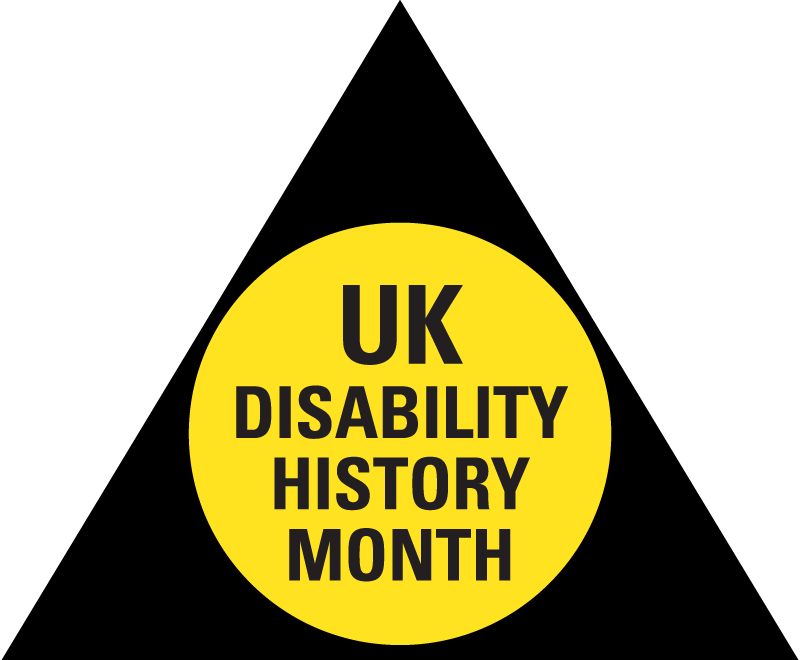Republished from: https://idontgiveaspoon.substack.com/p/brain-fog
Brain Fog
In art, culture and life
| Rebecca W Morris |
Brain fog is a hot topic right now. Particularly in reference to coronavirus, although I won’t discuss that in this newsletter. Brain fog was a part of many people’s lives long before coronavirus and it will continue to be.
I’ve observed a tendency to gatekeep the phrase in some online chronically ill communities. It isn’t a medical condition, though it’s a symptom of many. The problem is that the word is mistakenly overused, and it needs to be pointed out that brain fog is not the same as being tired. It isn’t comparable to having a few sleepless nights, or a flu you will recover from. It’s often a comorbidity of a long-term health condition
Many online definitions of brain fog talk about how you can treat it. I find this problematic, because it’s usually untreatable for disabled people. However, it’s prudent to remind ourselves that brain fog can be a reoccurring syndrome in non-disabled people, for example because of pregnancy or PTSD.
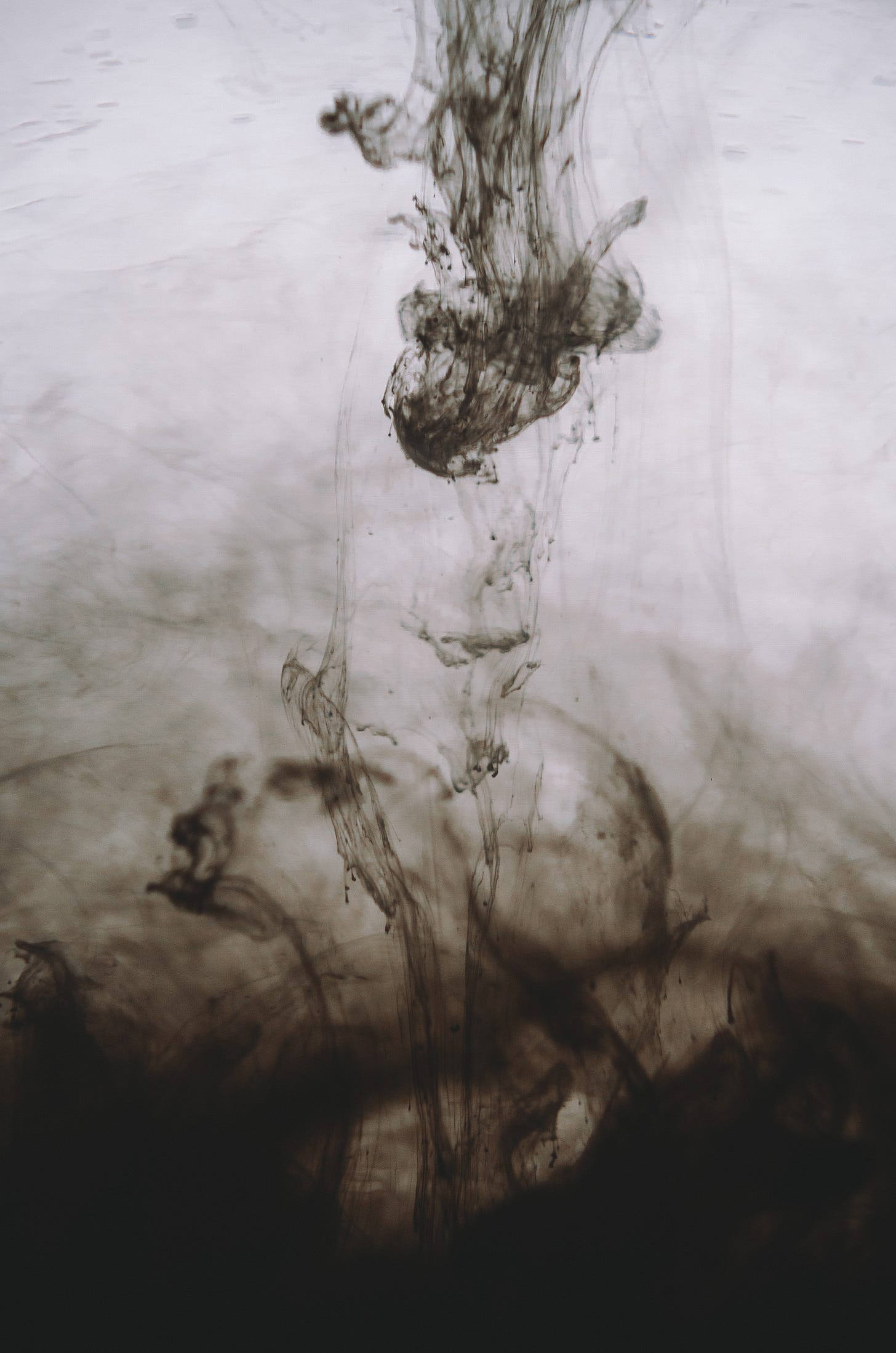
The definition of brain fog and the effects it has on its victim are as elusive as they sound. It is important that we get a better understanding of how it impacts sufferers on a regular basis, in the workplace and otherwise. In my opinion we should look at it less as a treatable inconvenience, but as a recurring condition which society can accept and accomodate.
In this newsletter I have collected ideas in literature and art that helped me to understand its effects on me over the years before I had a name for it. I’m also including anecdotes and illustrations from people who suffer from it, and a visual soundscape I made to describe how it feels.
What Brain Fog Feels Like For Me
It is the sensation that my mind and body are wholly separate. I could be a ventriloquist’s dummy, strings lifting the corners of my mouth up and down, and never entirely sure of what will come out.
I suppose it would be fine if I were able to assess how to cope adequately. Yet decision-making is compromised – at best, I cannot decide which task to do first; at worst I cannot imagine getting out of bed and putting one foot in front of the other.
I am childlike, and misunderstand what people are saying to me, making for disastrous miscommunications. If I am sleepy and peaceful, exchanges are amusing. Yet when I am low on all resources it is nightmarish and the world is out to get me.
It makes me think of the Goya illustration, The Sleep of Reason Produces Monsters. In my vulnerable state, my failings and weaknesses hover above, waiting to pounce. Therefore, I need a lot of kindness and understanding, and if I can’t have that, a total shut-off from society for the sake of all my relationships, familial or professional.
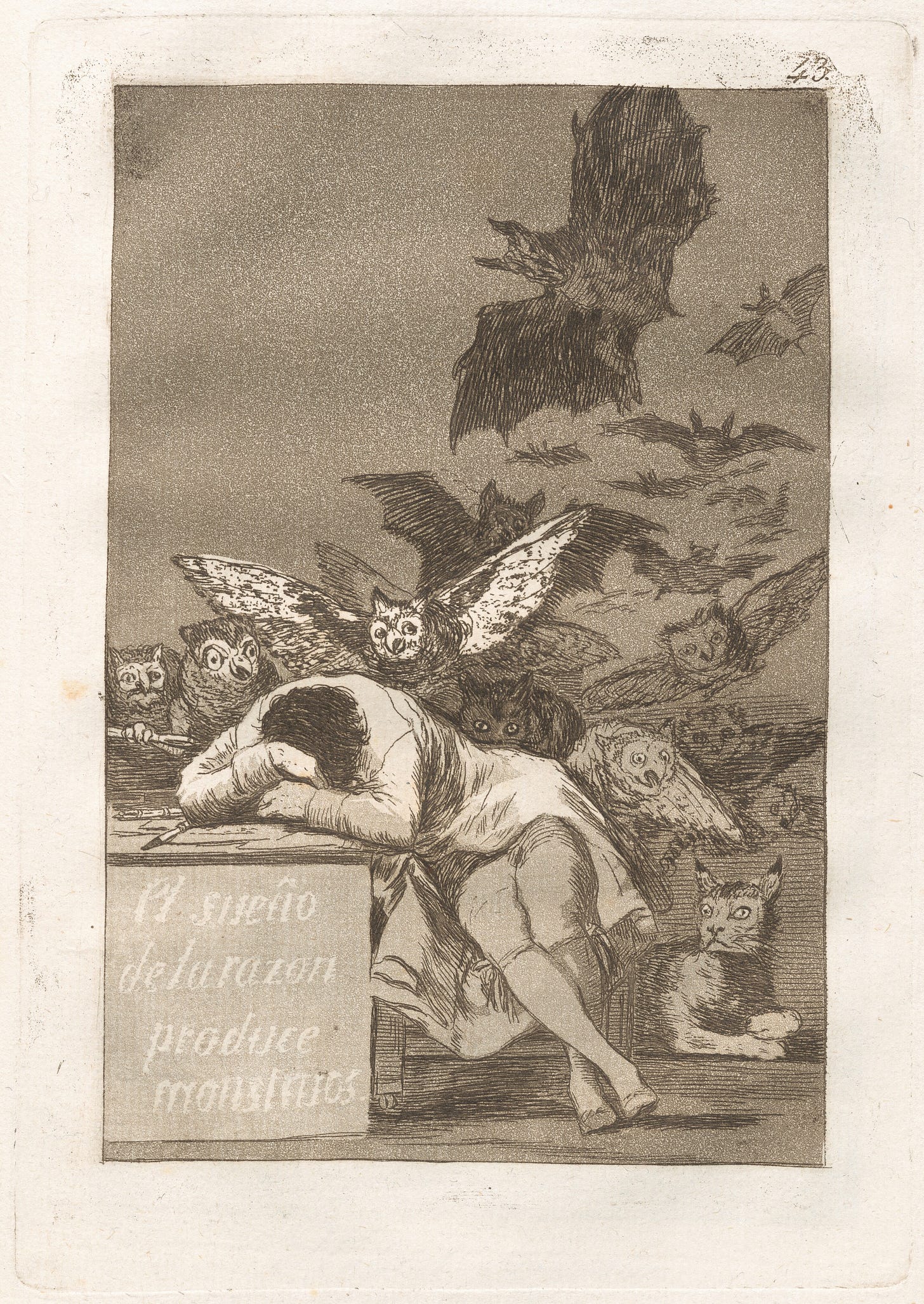
An important moment of my adolescence was reading the ‘Red Room scene’ at the beginning of Jane Eyre. Her fit of ‘hysterics’ was so familiar, that feeling of losing your grasp on reality when defenses are low, and it being worsened by unkind words. What starts as a tantrum, or more accurately, a trauma response from relentless bullying, becomes something else entirely. In the scene, a moving torchlight is interpreted by Jane as:
a herald of some coming vision from another world. My heart beat thick, my head grew hot; a sound filled my ears, which I deemed the rushing of wings; something seemed near me; I was oppressed, suffocated…
Jane misinterprets innocent visual stimuli as something more sinister. It is a shamefully accurate reflection of how I perceive the world when I have brain fog.
I was trying to locate a poem by Jackie Kay I once read that was about depression, but I couldn’t find it. In the poem, the protagonist is held hostage in her home by a cruel woman who straps her to the bed and discourages her to leave the house. Although it is characterising depression, for me it could easily be brain fog.
Jackie Kay renders the feeling of low periods so delicately and deftly in her poetry, it’s worth having a look at her work.
I am sitting at the window, forgetting the day I was born,
watching people come and go, unseen, invisible.
…
Whatever it was that…; I forget, the answer’s no.
There is something slow and pleasing about disappearing
This is from her poem based on a painting by Scottish artist, Edgar Degas, Woman at a Window.
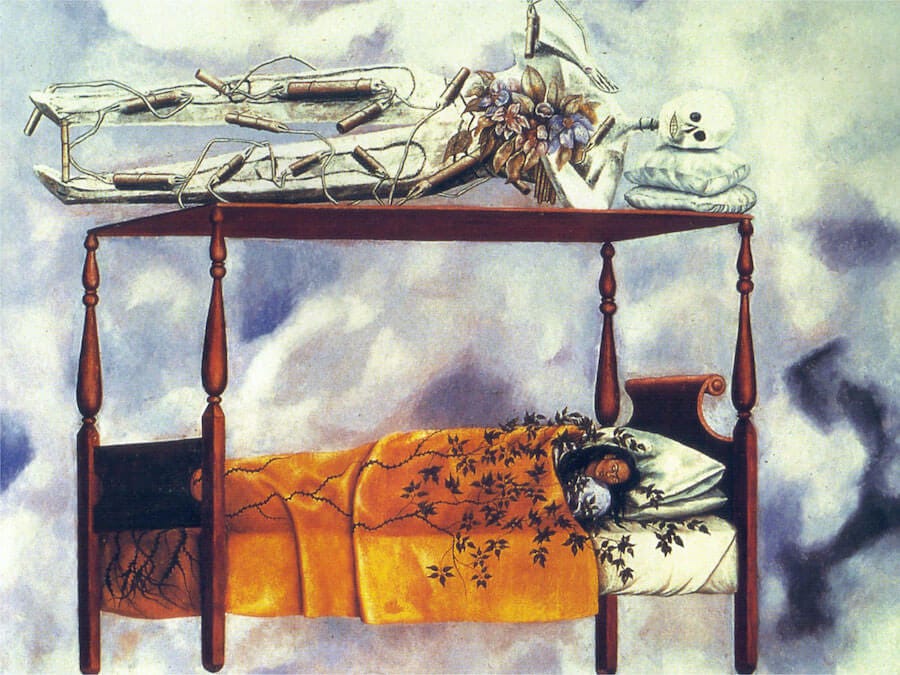
This painting by Frieda Kahlo, who was famously disabled, reminded me of the-out-of-body experience I have with brain fog. It is the depiction of this otherworldly ‘death’ figure, an impossible presence to escape from; as if there is a me, and a shadow me. The painting is both disturbing and poetic, even humorous. It represents a time to stop and reflect, recognising the true mortality of the self, the humanness underneath everything else that you are.
Testimonies
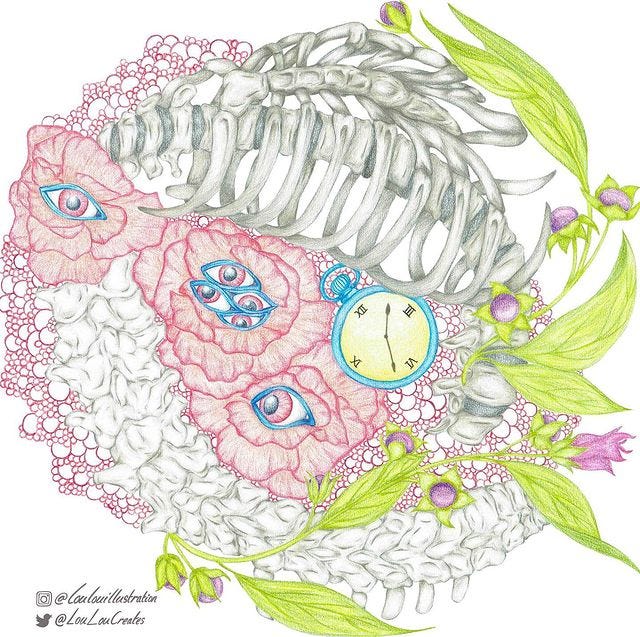
A post shared by Louise Marley (@loulouillustration)
Brain fog is a very strange and frustrating thing to get used to.
I have always been someone easily distracted, with a poor long-term memory as a result of living in constant pain from chronic illness.
It affects both my body and mind. It crashes over me, and I am unable to do anything other than sit on my bed under a layer of blankets at my laptop. I feel like my mind is stuffed with cotton.
My brain fog is worsened by my medication, as the side effects are fatigue and drowsiness. Whilst I can still do my creative work and I have no problems with the visual side of things, the haze in my head really inhibits my practical skills. I struggle with mental arithmetic; I reread again and again the lines of a book and cannot complete simple daily tasks.
I am constantly living with varying levels of fatigue that are only amplified by brain fog.
Louise Marley,
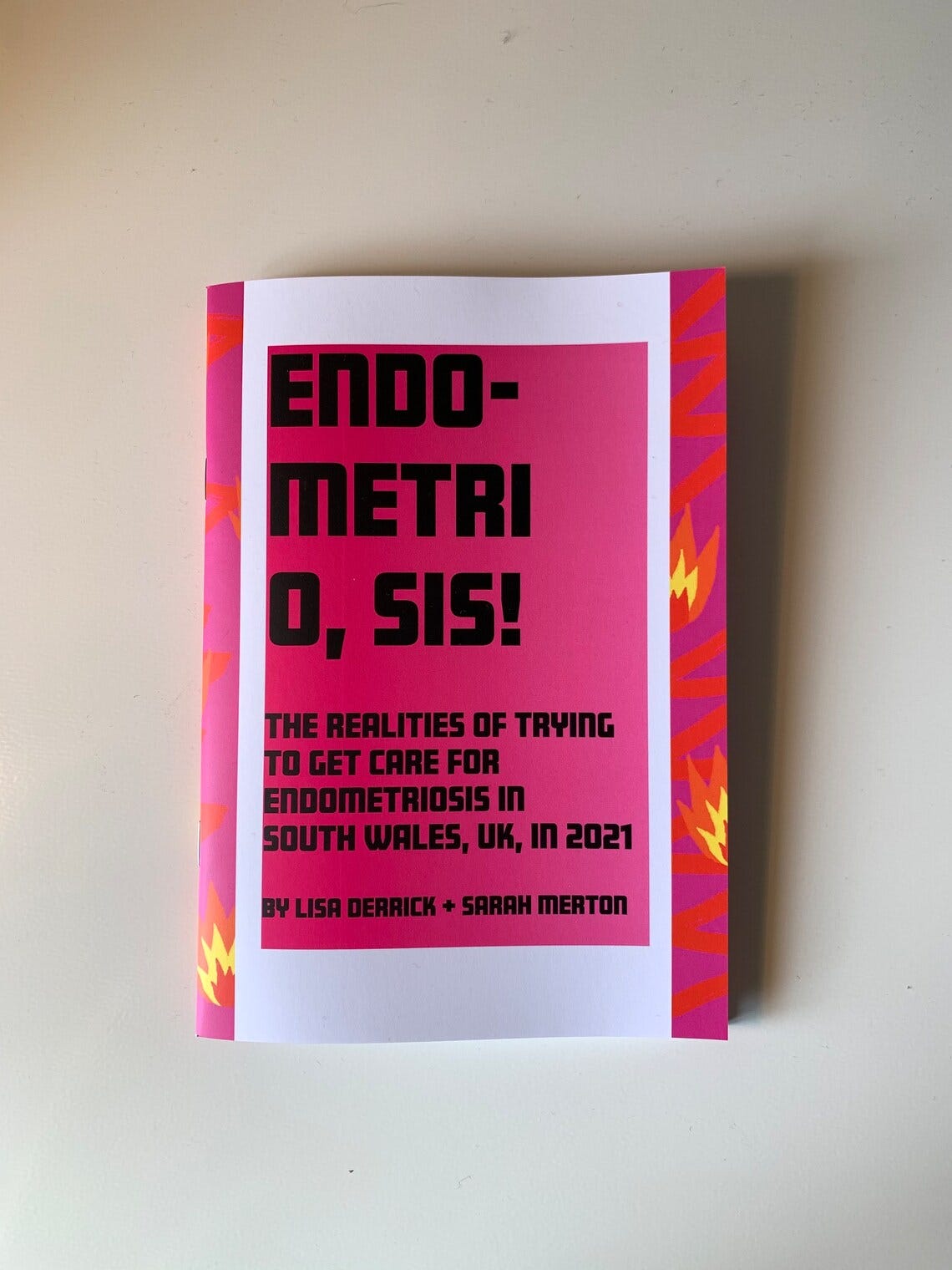
Brain fog is very aptly named in my experience. Woolly and cloud like, it settles around my thoughts and ability to focus. It slows things down, as if wading through head-to-toe cotton wool.
Plus, like the weather, it’s unpredictable and uncontrollable. I love mornings, but sometimes when brain fog hits it can take me hours of warming up, of being awake, before I feel the energetic kind of awake – if at all.
Hours of hovering around a computer screen can be necessary before I can focus enough to write something lucid. Communication feels as delayed as a South Wales train. There’s a slow drawn out pause before my brain truly processes a question or comment enough to find a response.
Sometimes a response remains out of grasp for much longer. It’s literally like my brain is lost in a cloud. Each time it descends, I don’t know when it’ll clear again so that I can feel part way myself.
Lisa Derrick
Visual Artist and Copywriterskmediahq
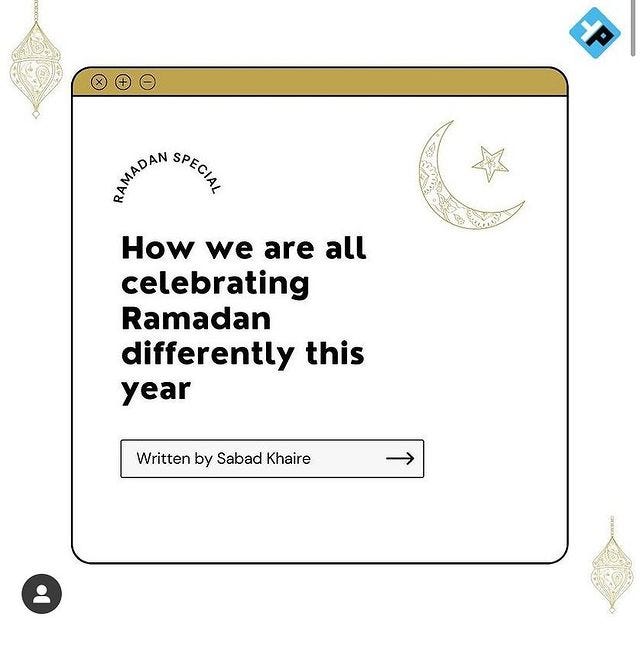
A post shared by SKMediaHQ (@skmediahq)
Brain fog can stop me in the middle of a task. It can take me a good twenty minutes to remember what I was doing before it took over.
My brain fog is often a side-effect of the medication from my kidney transplant. I take anti-rejection tablets and brain fog is one of its few side effects.
What helps me when I have brain fog is shorter hours and longer breaks. I need time to calm down and get myself together. I need to not focus on too many tasks in a day.
These are what help me in an employment situation: shorter hours and longer breaks. I don’t always have brain fog, but it is a situation that reoccurs often, and I have to be prepared for it.
Sabad Khaire
Digital Creatorsabrinahansen89
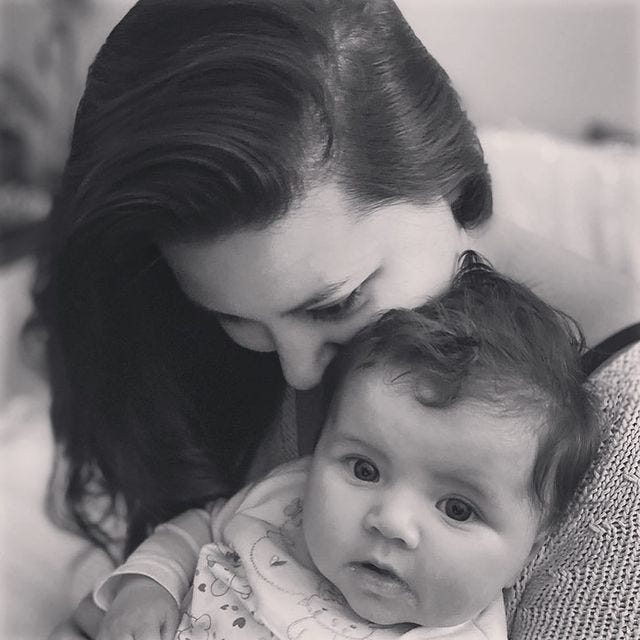
A post shared by Sabrina Hansen (@sabrinahansen89)
My mind hasn’t been the same since I became a mother. A lot of changes have occurred but the most subtle one was brain fog. I had never heard of the condition until a friend referred to it on Instagram. Then I thought, “Hang on! That’s me! That’s what I have been experiencing!” I had most of the symptoms: depression, inactivity, a poor diet, (I was craving sugar like crazy, which was unlike me!) tiredness, distraction…
It started when I was pregnant. I would forget things such as my pin code for my bank card and anything with numbers made me very confused.
It became worse when my daughter was born. I was so tired, overwhelmed and confused, but the strangest thing was that anything related to my baby was always fine. There is not one single thing about her or closely related to her that I forget.
I am a student as well as a mother and focusing has become a real challenge! My memory, one of my best assets, is now unreliable.
Work assignments feel like riding a roller-coaster before I can understand my task and say, “oh ok, so that’s what I should be doing/understanding/learning”. I have become quite slow when I used to be so alert.
The same thing applies to my hobbies. My brain is completely overwhelmed with life, with motherhood, with me. The depressing thing is that I sometimes sense that it is me I am forgetting. It’s a “me” fog.
I may “just” need a break, for my brain to refresh and take the time to process everything… But until then, I’ll just have to sigh with the hope that it might clear away a little bit of that fog.
Sabrina Hansen
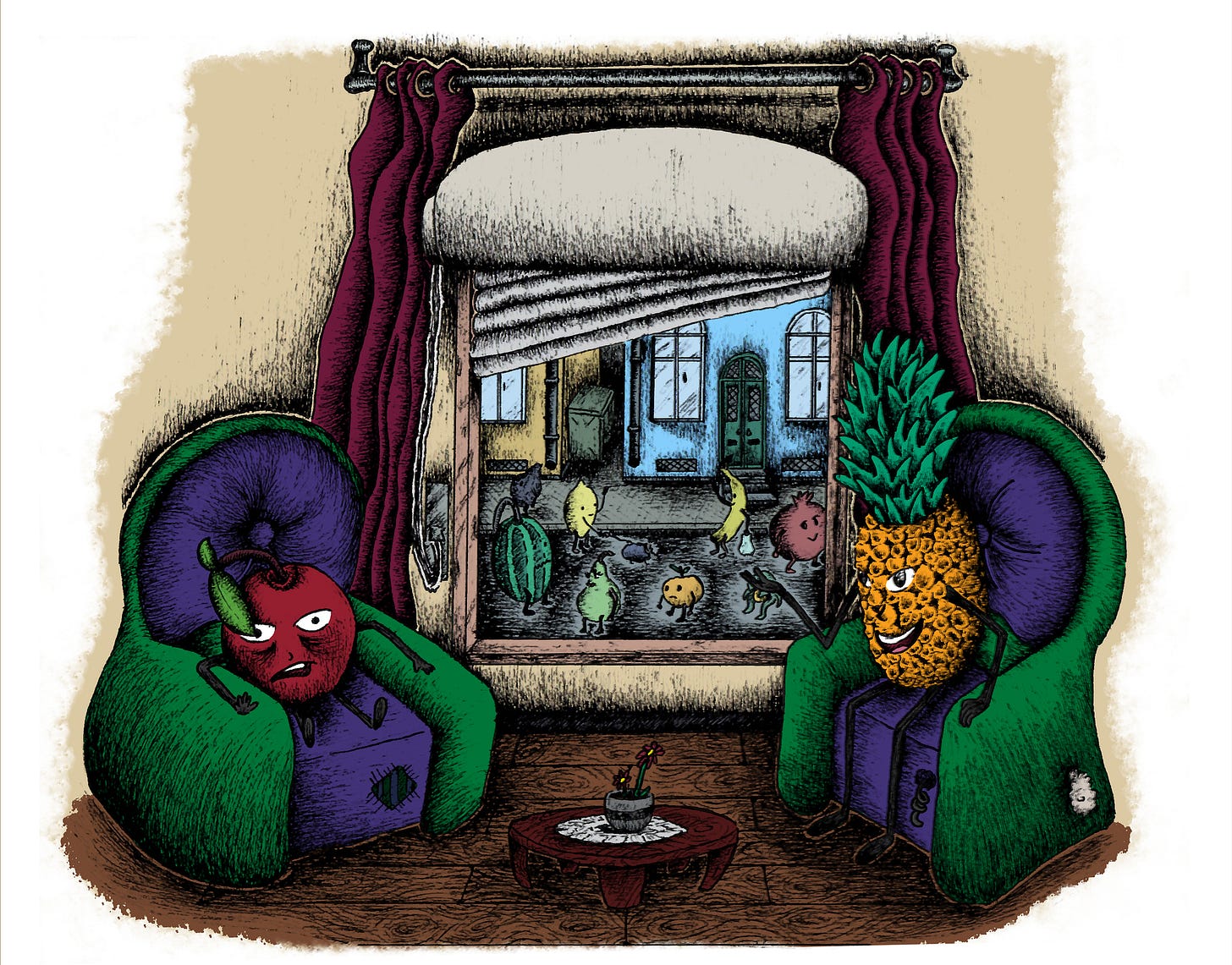
When I was taking pills for epilepsy it affected my brain so much I almost completely lost the ability to focus.
I had so many issues with my memory, I went from having a photographic memory to being barely able to focus. Even when I was better and stopped the medication, I was never able to regain my photographic memory.
I always had this feeling of being underwater in my mind, like when I was trying to concentrate, I felt too much pressure on my brain.
Hugo Pouca Roupart
How can we support people who suffer with brain fog better?
It is both frightening and a relief when you realise that this depressive state is a result of something physical. As I have entered my thirties, I now have the foresight and experience to backtrack, recognising patterns and triggers for the bad periods.
Nowadays I surround myself with people who understand and don’t question that adaptations need to be made. I have been in difficult and unsafe situations where that hasn’t been possible, but I have learnt plentifully from it.
I need to know that if I fall into the ‘mists’, I will not be yanked out abruptly, but my hand held as I clumsily navigate the cloudy terrain. I hope at least for a trail of breadcrumbs, guiding me through, until I am ready to come back.
Below is the visual soundscape I made:
